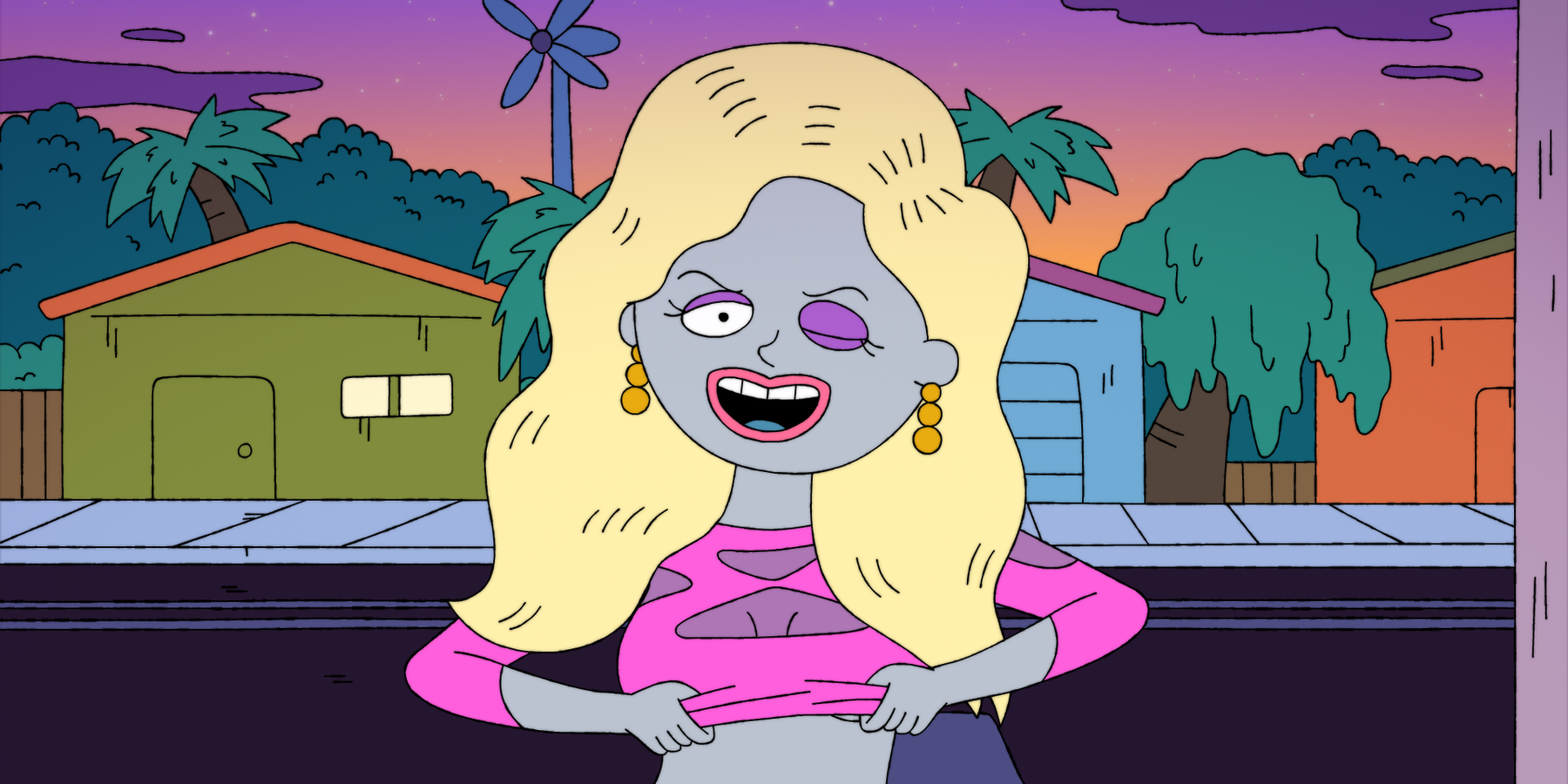
When I was an angsty suburban teen, the only time I watched Adult Swim was at my crusty boyfriend's house. I would always sit in the back, picking at my black nail polish (this was pre-smartphones), while his skeevy crew of white teenage boys did their little Beavis and Butthead laughs to Eric Andre yelling "Bird Up!" Obviously, those experiences were pretty alienating, and so I ignored Adult Swim for years, figuring all the shows would give off big Call of Duty, Nacho Cheese Doritos vibes. At least until I watched Teenage Euthanasia and fell back in love with adult animation.
Set in a bleak near-future in an even bleaker area of inland Florida, Alyson Levy and Alissa Nutting's coming of age comedy follows the misadventures of the Fantasy family, who own a funeral home called Tender Endings. Comprised of "old country" Grandma Baba (Bebe Neuwirth), loser Uncle Pete (Tim Robinson), wild child Trophy (Maria Bamford) and her exceedingly well-adjusted teenage daughter, Euthanasia or "Annie" (Jo Firestone), the Fantasys get swept up in a whirlwind of chaos once Trophy — who ran away after Annie's birth — dies and is reanimated by a mixture of Baba's homemade embalming fluid and Annie's tears combined with a bolt of lightning.
And though you'd think she'd use her second chance to finally be the mother Annie always deserved, Trophy remains Trophy. This time around, the only difference is that she has a horde of vagina beetles doing her bidding, a FashionNova account and Annie as her babysitter.
"We wanted to do an animation that was centered around a female teenager, but in a way we hadn't seen before," as Florida-raised Nutting said, pointing out that these characters are either the sardonic alt girl (Daria Morgendorffer, Joan of Arc) or, usually, the annoying sister archetype (Lisa Simpson, Meg Griffith, Summer Smith). And when it comes to the sisters, they tend to be "just tagalongs," a plot device or the butt of the joke, which Nutting said made them "want to do something different" with a "character that was sympathetic but weird."
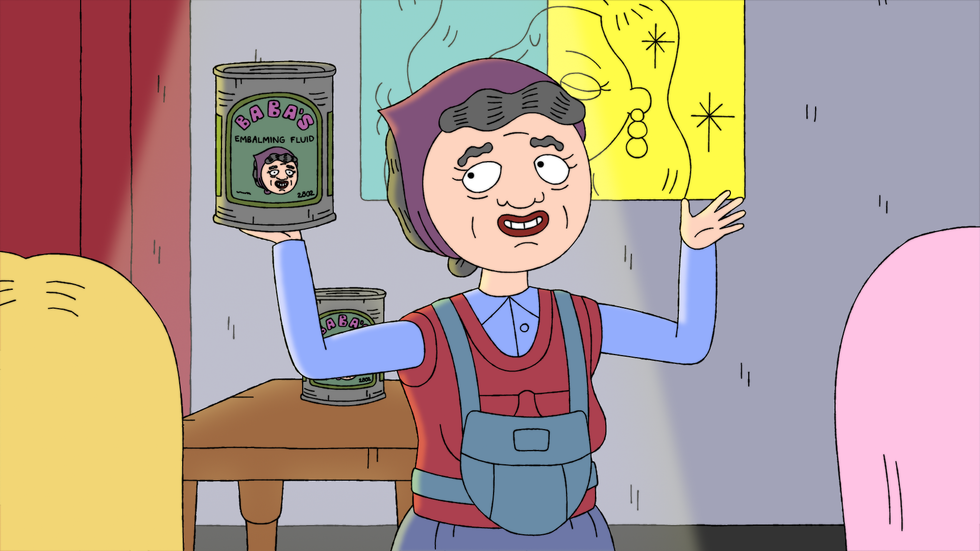
All of this means that apart from being Adult Swim's first women-led show, what makes Teenage Euthanasia so special is how it approaches the experience of being a teenage girl, and it works so well because, as Levy explained, they "tried to make a show that was in [their] own image."
As any woman will tell you, being a teenage girl is a messy, weird, horny, awkward and, oftentimes, extremely gross experience, and you have to do it all while existing in a world obsessed with telling you how "inferior you look all the time," per Levy. And this was why it was so important for them to recruit art director Abby Jame to bring the Fantasy women to life — jiggly thighs, realistic boobs, love handles and all.
"I knew we had to have women design the bodies of the characters. In general, I hope people can feel that difference," Levy said while pointing towards things like Annie being a little chubby. "They're not just perfect animated."
Oftentimes though, Jame revealed the men they work with "will be like, 'I can't talk about that,' or 'I can't write from the perspective of a girl,'" effectively flattening the character while also not noticing things like "forgetting Trophy's love handles."
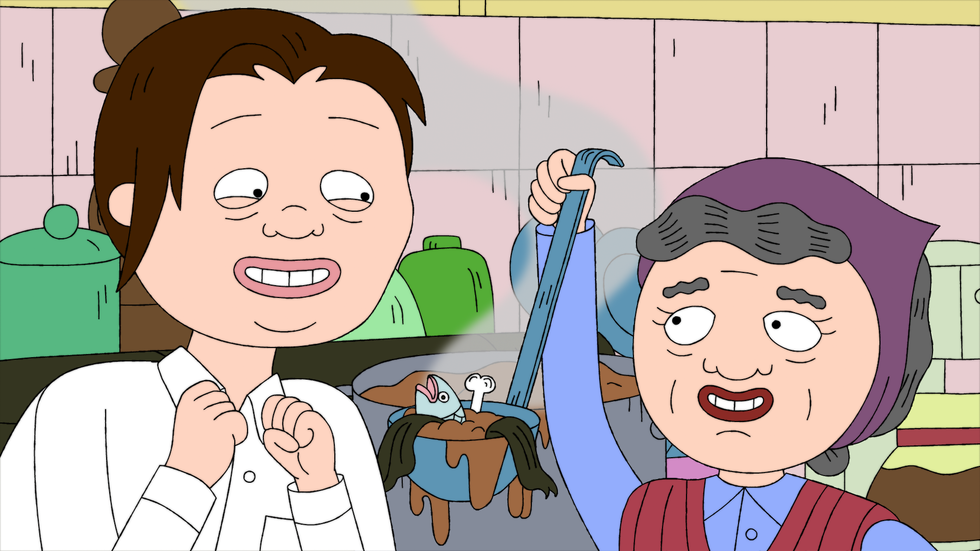
"I had to redraw the boob shape because they would always be [perfect circles], and I'm like, 'No, they're not shaped like that. It's an organic shape. They don't see the difference," Jame said. "But it's a big difference. This shape versus a normal shape of a freaking body."
Nutting echoed, "Yeah, it's very small details because your body's not perfect."
Unfortunately, though, this isn't all that surprising as she also noted that everyone's shown these "competing messages about [young women]. Like looking a certain way on Instagram... but also having girls like Greta Thunberg addressing the world." Meanwhile, the show's skewering of our current iCloud hellscape also tackles the inescapability of a seemingly perfect online world of influencers, advertisements and algorithms that know exactly which product and what service will finally make you happy, many of which prey on the insecurities of young women.
Granted, most of us just "desperately want people to notice and love us like Annie," as Levy said. And while Nutting agreed with this, she also said "experimentation is so central to that age," especially for girls like Annie who've been missing that "mother figure you kind of develop yourself around, whether it's in opposition to or in alignment with her. She's really just been this blank space until now. And, now, she has this woman she absolutely does not want to be."
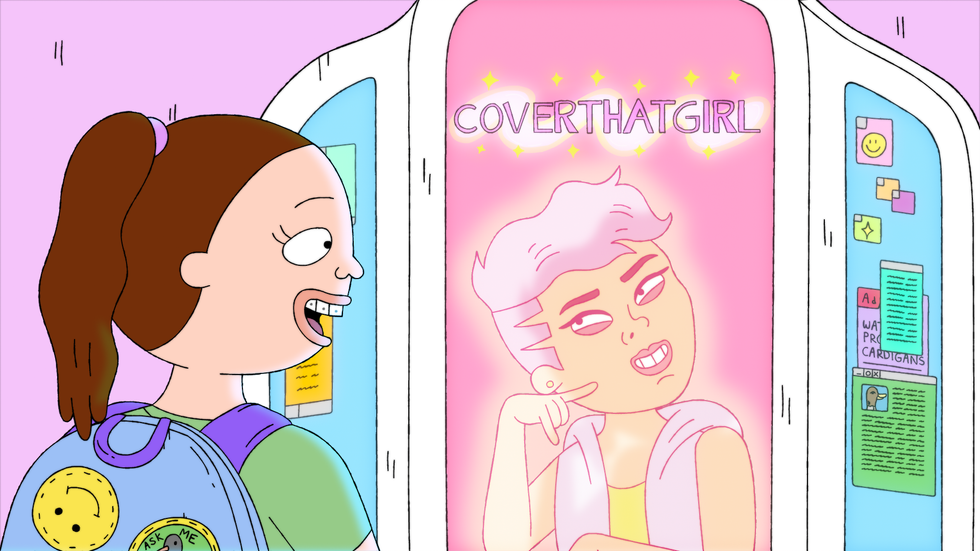
Similarly, Teenage Euthanasia handles these mother figures just like its teenage girls, as Levy and Nutting — both mothers themselves — wanted to create something that explored matriarchies and intergenerational female relationships. So from the cultural clash between Baba and Trophy, Baba's indifference toward Annie and Trophy acting more like Annie's "bad influence" of a friend, it's a refreshing reminder of the joy, pitfalls and complexities that come with motherhood.
After all, the women of Teenage Euthanasia aren't nurturing caretakers, emotionally supportive or BFFs in that annoyingly quirky Gilmore Girls way, but they're also not the kinds of people you'd see in some trauma porn series about "struggling single motherhood." Instead, Teenage Euthanasia depicts them as women with good intentions who sometimes get a little lost between their personality flaws, self-interest and misguided logic, as illustrated by things like Trophy's unconventional way of protecting Annie from boys.
Besides, as Nutting said, "daddy issues are for amateurs, we wanted to look at mommy issues," with the Fantasys serving as an incredible case study. For starters, there's the issue of Uncle Pete's extreme Oedipal complex fostered by Baba's overbearing nature and emphasis on duty and, at the same time, you can argue this parenting approach also contributed to Trophy's teenage rebellion and her decision to run away from her responsibilities.
Meanwhile, poor Annie is here to be the voice of reason, despite having to watch her uncle be a little bitch baby and her mom be the hot mess to top off all hot messes. The latter was definitely intentional, which also serves as a clever rebuttal to the "yaas feminism" that's more about #Girlboss capitalism than uplifting and accepting individual women for who they are.
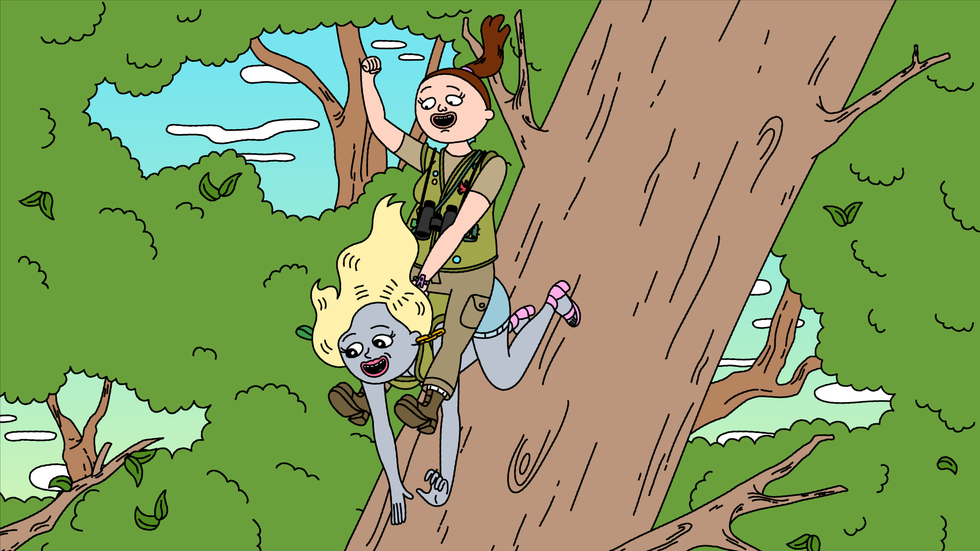
"We were also both into really humanizing the 'party girl' or the kind of 'dumb girl,' and it's something I really love, because I'm not that way at all. I'm like a really big weirdo dork person, you know," Levy said on our Zoom call, which she'd answered in a sweater that also read "Weirdo." She continued, "But I really like that the butt of all the jokes can be humanized. So we put [Trophy] right at the center and kind of let her control what happens."
Part of this humanization, though, also comes from Teenage Euthanasia's focus on second chances, which Nutting explained was important because if you're dealing with "party girl representation," someone's bound to "fuck up."
"This whole 'live fast, die young' thing, I just kind of wanted to see that person come back and have to interact with their 'mistakes.' The child that they left behind. [Instead], we always see them go out in a blaze of glory," she said before revealing that, despite the show's cynical tone, it's also trying to "say something about optimism."
"It's a complicated thing, but I feel we do need a certain element of that in family. That sense of 'maybe they'll change' or 'maybe we can connect with them,'" Nutting said. "You're always trying to find that common thread between each other, even if there isn't one, just because of the fact that you're related." Even if your mom is an insane reanimated corpse with supernatural powers.
Photos courtesy of Adult Swim
From Your Site Articles
- Eric André Sues Clayton County Police Over Racial Profiling ›
- Tall Milk Works With Sex Worker Authors in Short Film Series ›
Related Articles Around the Web